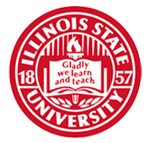Abstract
Minoritized students in Communication Sciences and Disorders (CSD) programs have unique insights into inclusion and diversity initiatives based on their lived experiences. In this study, the researcher examined and analyzed recommendations that minorized CSD graduate students provided to programs to increase inclusion. The researcher identified themes within the recommendations using discourse analysis to analyze how students positioned themselves and faculty in relationship to diversity and inclusion. A total of 104 minoritized CSD graduate students across 28 states completed a survey that included demographic information and a writing prompt for recommendations to programs. The study found that students valued broad and targeted recruitment efforts, faculty education on diversity, supportive connections and networks, diversity topics throughout courses and within clinical training, and access to resources. Students positioned themselves as having social goods or assets in the form of diversity knowledge and lived experiences that could inform peers and faculty. Students positioned faculty as simultaneously having social goods through the social and political power of their roles and lacking social goods in the form of limited diversity knowledge. These findings align with existing literature for diversification of graduate programs that prioritize recruitment, foster connections, and offer resources. Minoritized graduate students provided additional recommendations to programs to provide faculty training, actively build community for students, address contemporary diversity issues throughout the curriculum, and advocate for diversity as an asset. Student recommendations on inclusion honored students as experts in their needs and contributed to discussion of how faculty can support inclusion and diversification of the field.
Recommended Citation
Roberts, T. M.
(2023).
Minoritized Graduate Students’ Recommendations to Communication Sciences and Disorders Programs to Improve Inclusion of Minoritized Students.
Teaching and Learning in Communication Sciences & Disorders, 7(2).
DOI: https://doi.org/10.30707/TLCSD7.2.1690393489.708494
Included in
Disability and Equity in Education Commons, Scholarship of Teaching and Learning Commons




